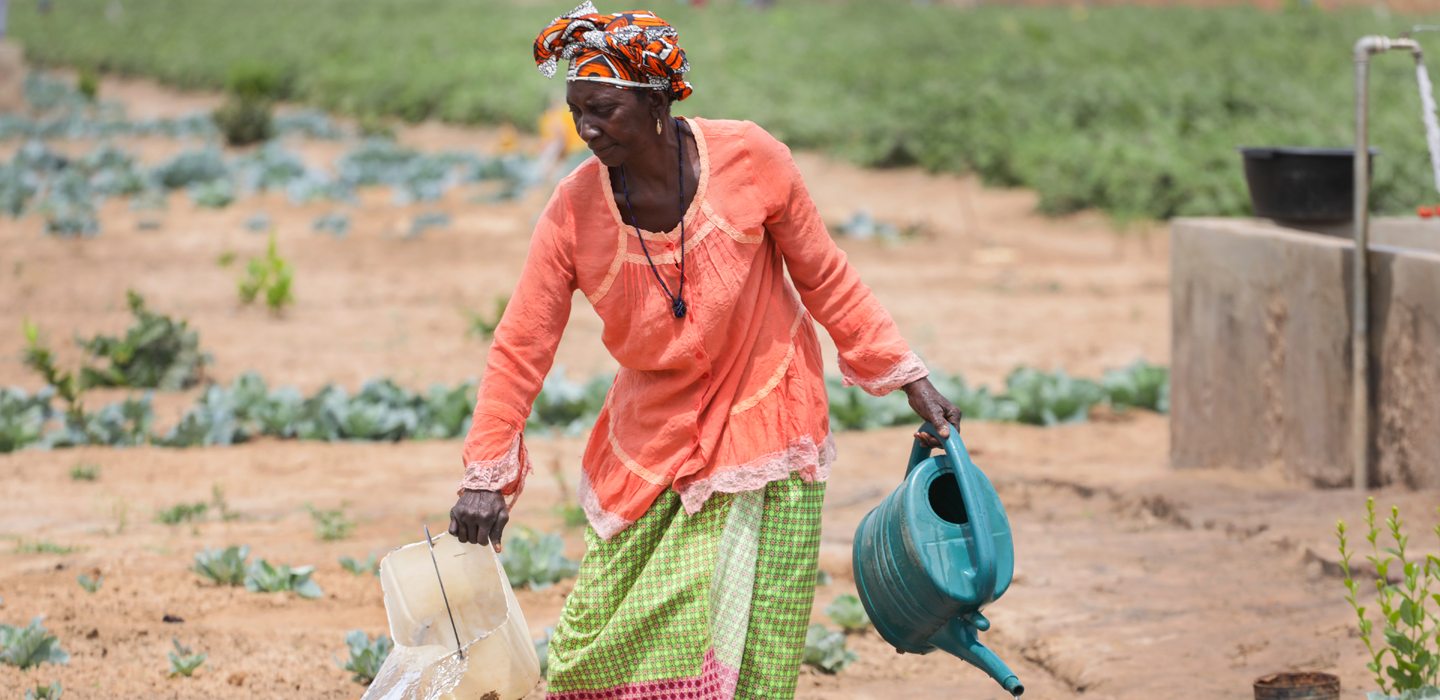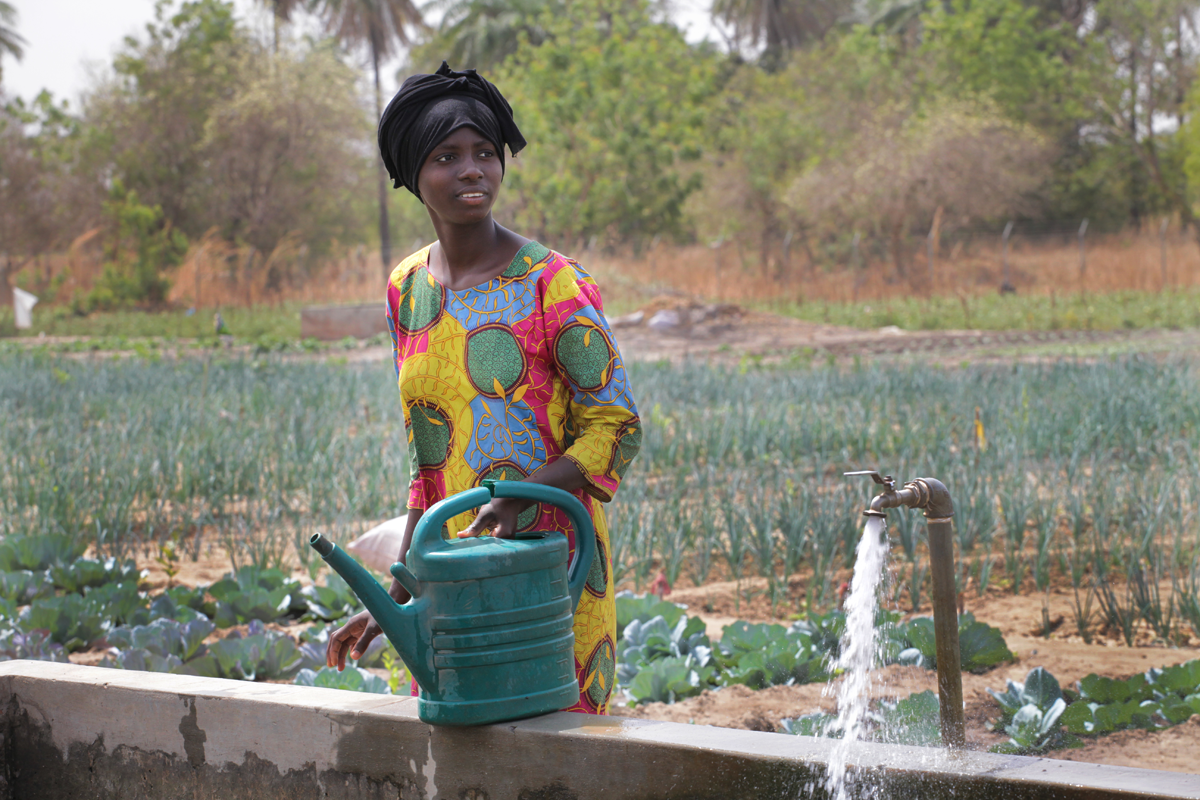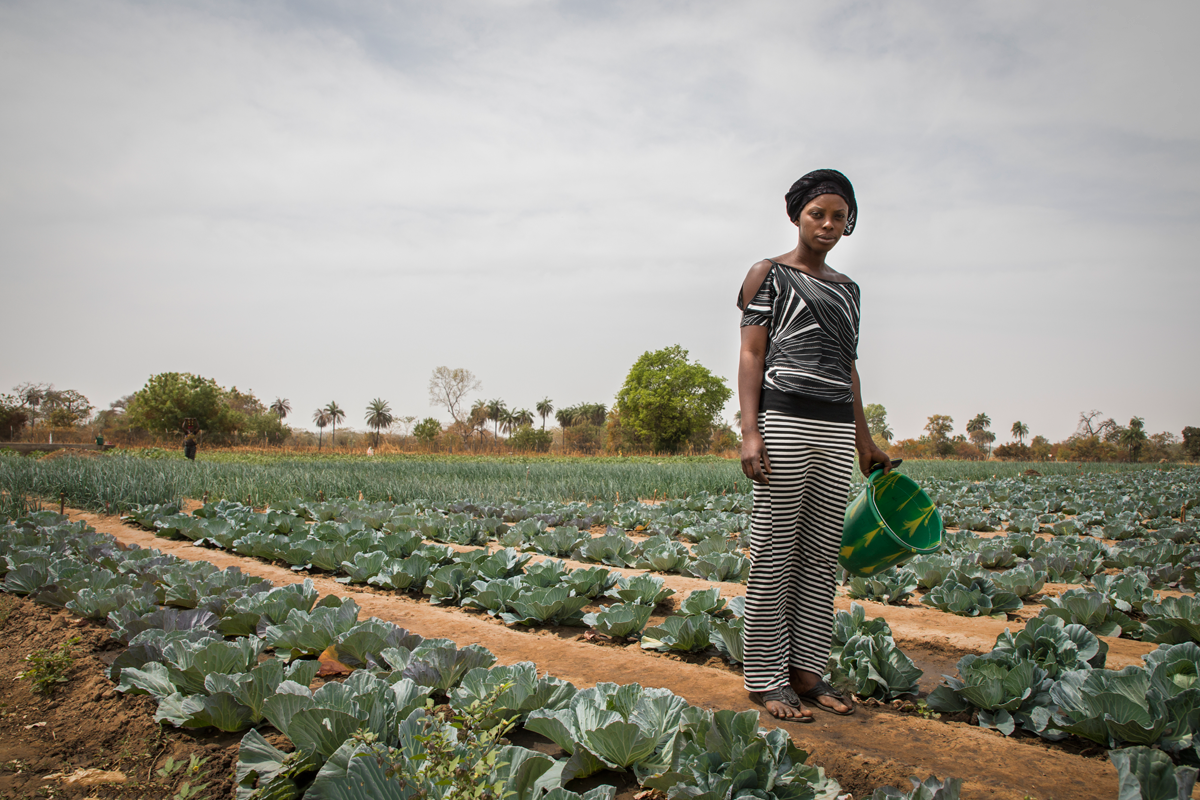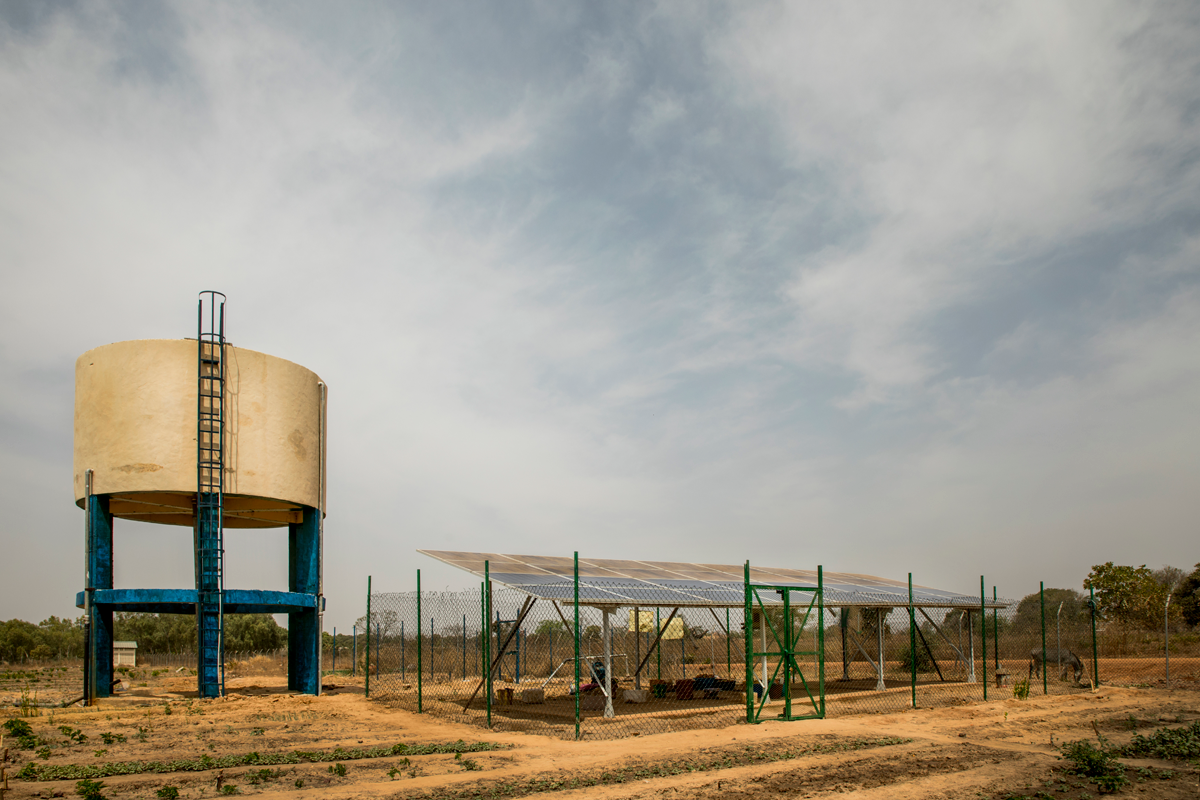Community gardens in the Gambia: one solution, many benefits
IFAD Asset Request Portlet
Asset Publisher
Community gardens in the Gambia: one solution, many benefits
Estimated reading time: 3 minutes
©IFAD/Barbara Gravelli
Anyone who stops by Berefet notices how local people cherish the community garden in this small village in the western Gambia. The five-hectare yard has become a land of opportunities for 250 women who grow vegetables. The community who once depended on limited and irregular production of rice and a few other crops now cultivate a nutritious diversity of crops - tomatoes, onions, peppers, cabbages and sweet potatoes.
This transformation has been made possible by a series of recent investments in Berefet. The community garden was established in 2012, but really started to grow in 2016 when IFAD sponsored structures and equipment, such as a borehole, pipe distribution network and solar power system, and capacity-building for local farmers.
Berefet's is among the nine operational community gardens supported by IFAD in the Gambia. In addition, 24 gardens are under advanced construction and expected to be established in the next few months, while another 17 will follow.

Community gardens have become a model of sustainable small-scale agriculture in the country, and have shown many benefits:
Job creation. The investments made in community vegetable gardens has mobilised local communities and created jobs. Villagers – especially women – are encouraged to work on delimited spaces to cultivate their own crops.
Farmers' education. These gardens are spaces for community exchanges and knowledge sharing. Several gardens also offer formal training through farmer field schools (FFS) where students learn about crop production, pest management, business management and rural entrepreneurship.
Child education: Families can now afford to send their children to school. Some of IFAD-supported gardens supply crops to local schools, encouraging class attendance and improving nutrition.

Women empowerment: Most farmers in these gardens are women as they hold the traditional role of growing subsistence crops in many rural contexts. Women can contribute more to their households' budget and hence become more involved in family decisions.
The women farmers are contributing to their households' budget and reinvesting in the garden. "Before IFAD's intervention, no woman in this village had a bank account. Now everyone has one thanks to the increased incomes from the garden", notes Fabakary Jatta, who provides agricultural training to local farmers.
Youth empowerment: Community vegetable gardens have a great impact at the community level, especially in small villages. They become a business hotspot, drawing significant attention from local people and encouraging the youth to take up hoes. By attracting young workforce, these gardens contribute to avoid rural exodus and migration while offering life opportunities to the new generations.
Food security, nutrition and health: These gardens provide local communities with access to diversified and affordable food. Nearly all food is organic, as are compost and pesticides. Overall child and adult nutrition is improved.
"Our incomes are much higher thanks to this garden", says Karafanding Badjie, president of the Berefet garden association. "Now we have healthier and more balanced diets. These vegetables have improved our nutrition and we have many food choices every day."

Climate resilience: Rural Gambians struggle to cope with droughts, erratic rainfall and limited access to water. IFAD-supported vegetable gardens provide adequate water management systems to adapt to the increasingly uncertain climate change effects. Irrigation systems are often powered by renewable energy technologies, such as solar panels.
Community development: Shared crop cultivations have greatly contributed to the development of local communities. Increased revenue has transformational benefits for the whole community.
Sustainability: After initial investments, community gardens tend to scale up by themselves in contexts like rural Gambia. With or without external support, producers establish formal or informal associations to manage issues as they arise. Profits are reinvested for maintenance and to develop the gardens.
Publication date: 12 April 2019